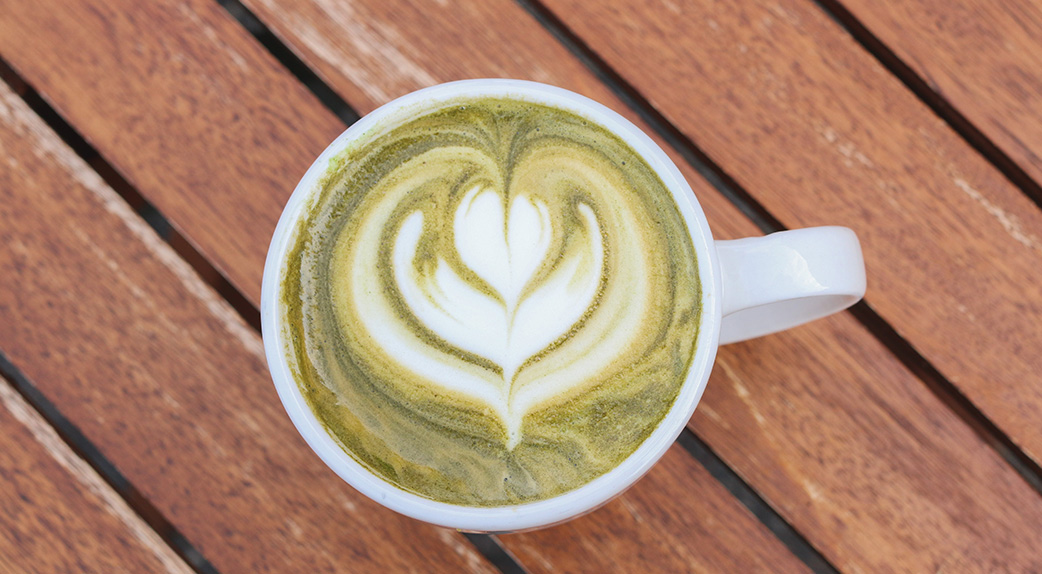Originally from Japan, matcha tea is a fine green powder. This drink with many virtues belongs to the category of green teas. Although beneficial to health, matcha is said to have an impact on the body's ability to absorb iron. Kusmi separates the truth from the falsehood and tries to shed some light on the matter!

Iron, essential to our body
Iron is a trace mineral that is essential to the proper functioning of our body. It enables us to transport oxygen from our lungs to all the other organs. The body obtains iron from foods that contain it.
Difference between haem iron and non-haem iron
There are two kinds of iron: heme iron from animals, found in meat or milk, and non-heme iron from plants, found in vegetables or tea!
Does matcha tea prevent the absorption of iron?
Perhaps you have already read or heard that the green tea family, to which matcha tea powder belongs, has an effect on the level of iron in the body?
Matcha tea contains tannins, compounds that limit the absorption of iron in the blood. Tannins bind to iron to form a complex that makes it impossible for it to dissolve in our bodies. Tannins are also found in black teas, but also in red wine and coffee.
How can this undesirable effect be limited?
Simply by spacing out the consumption of matcha from your meals. It is generally recommended that you wait 2 hours before and after your meal.
Do you suffer from iron deficiency or anemia?
Are you a person suffering from anemia or a pregnant woman? Before consuming your first cup of matcha tea, ask your doctor for advice.
How can you compensate for a decrease in iron in your body?
Can't do without your cup of matcha every morning? There are many natural foods that are excellent for your health and can provide you with a complementary dose of iron.
• Cereals
• Oats
• Wheat...
• Pulses
• Lentils
• Peas
• Chickpeas...
• Oilseeds
• Nuts
• Hazelnuts
• Chestnuts...
• Fruits and vegetables
• Rhubarb
• Green beans
• Green beans
Which food is richest in iron?
Ao-Nori, a seaweed widely used in Asia to season pasta, soups or fish. Its taste is very similar to that of tea.
Reminder of the benefits of matcha tea
Matcha tea has many health benefits. First of all, it is rich in antioxidants, the molecules necessary for the proper functioning of our immune system. Antioxidants are said to help fight against the development of certain diseases but also against the premature ageing of cells. Matcha tea is also said to have stimulating and energising properties. Rich in theine, the caffeine in tea, it will provide you with the energy you need to get through your day.
Without increasing your nervousness, unlike coffee! This is why it belongs to the category of stimulants, whereas coffee rich in caffeine is associated with an excitant. Finally, matcha tea is said to have benefits for the skin but also draining and diuretic properties! A drink that is sure to be part of your daily routine!
Kusmi Tea, an organic matcha made in Normandy
Discover the organic matcha tea made in France by Kusmi Tea, designed and produced in Normandy. With a view to quality and reducing the ecological footprint, all our tea ranges are organic. Our priority is to defend sustainable and environmentally friendly agriculture.
If consumed too close to meals, matcha tea can have an impact on iron absorption. But the fear of an iron deficiency should not force you to eliminate matcha from your daily routine! Like all green teas, it can be consumed sensibly outside of meals. Pamper yourself with a Kusmi organic matcha.
Read more on the subject:
What is the theine content of matcha tea?

